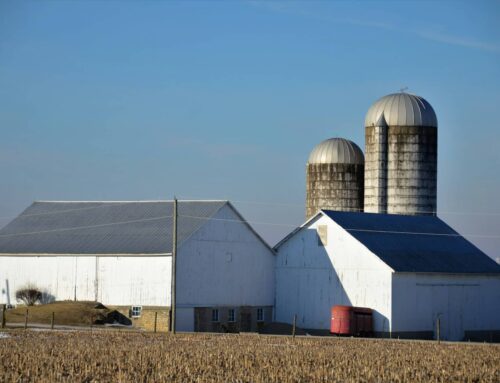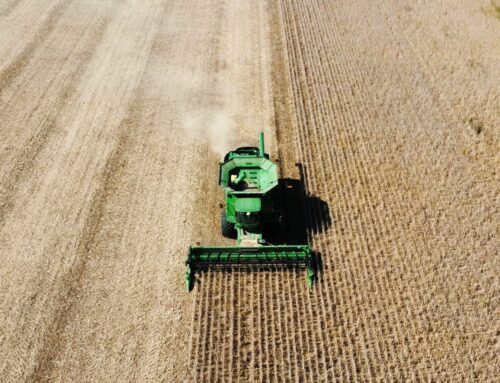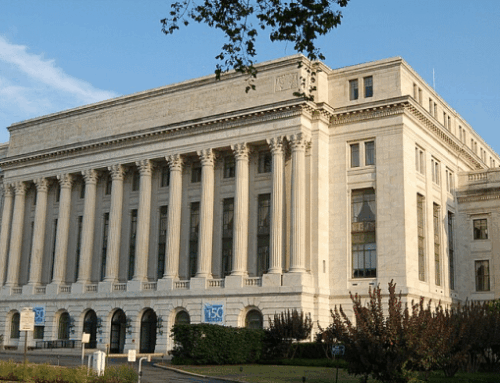With much of farm country baking, some lawmakers in Washington see the record-setting drought as a perfect opportunity to make tax dollars rain on favored special interests. But instead of calling for a speedy and open debate about the appropriate role for federal taxpayers, these lawmakers are discussing parliamentary tricks to stiff-arm the rest of Congress that isn’t on the Agriculture Committee. Calls to enact a nearly trillion-dollar Farm Bill without debate and without amendment are a brazen end-run around democracy and a cynical exploitation of the drought.
The $957 billion Farm Bill passed by the House Agriculture Committee won’t solve the drought. Roughly 80% of the bill doesn’t even deal with a safety net for agriculture, but governs programs on nutrition. And the other 20% is mainly comprised of modifications to crop insurance—new special interest carve-outs like margin protection for catfish producers or poultry business interruption, wasteful ethanol and bioenergy programs, and creating new entitlement programs to cover “shallow” losses , that is modest dips as little as 10%, to business revenue. In fact only 0.2% of the bill’s price tag —$2 billion—deals with expired disaster programs for producers of such things as livestock or honey bees.
Agriculture Committee members know the special interest payoffs they’ve planted in the Farm Bill will wilt under the glare of reformers not on the committee, so they’ve come up with a plan to cut everyone else out of the debate. With a wink from Chairman Frank Lucas (R-OK), the ranking Democrat Collin Peterson (MN) has openly described the process where the House would vote on a one year extension of the current Farm Bill that expires at the end of September. That bill would be little more than a ticket to start negotiations with the Senate, which already passed a bloated five year Farm Bill renewal . Then they would jam a monstrous five year renewal across the House floor, through the Senate, and to the White House, which is salivating to enact a new bloated bill right before the election.
This isn’t the first time Agriculture Committee members have shown contempt for their fellow Congressmen and taxpayers. The committee chairs and ranking members cut their own committee members out last fall and attempted to cram a backroom brokered Farm Bill into a potential Super Committee agreement. And for weeks now they’ve been claiming we have to pass the Farm Bill or else farmers will have no safety net to protect them from this drought.
The fact is taxpayers already created a safety net; it’s called federal crop insurance. Taxpayers subsidize, at an average rate of 62%, farmers’ insurance premium costs for policies covering everything from almonds to oysters. We pay farmers to buy the policies, we pay crop insurance companies to deliver them, and we cover most of the losses. It’s so successful that 2.1 million policies covered 265 million acres last year. And currently, about 83 percent of the acres in states that have a majority of cropland suffering drought have crop insurance.
And crop insurance will pay out. We’re not just insuring crops, but expected revenue. So as the drought worsens, fewer crops are harvested, driving up prices. Producers who bought subsidized revenue insurance, which typically pays out on harvest prices (which have climbed up to $8 a bushel), not prices from the spring, could end up having record low harvests, but record high income . This is on top of a run of good luck not seen in generations. You don’t have to take our word for it. They’re saying so themselves .
The bizarre fact is that the Farm Bills currently being considered don’t rein in these subsidies, they put them on steroids. Crop insurance is already likely to cost taxpayers more than $20 billion this year, regardless of whether or not Congress passes a Farm Bill. If the proposed changes were in effect , the number would be far higher. The shocking thing is that even in good years, taxpayers would be paying to guarantee profits for agribusiness. Even without a nearly $16 trillion debt and more than $1 trillion annual deficits for the next decade, we can’t afford these policies.
Lawmakers must be able to debate and amend trillion dollar bills, so it’s up to Speaker Boehner to shut down these shenanigans.
TCS Quote of the Week:
“If you’re serious about ending this program, then end it. You’re not ending this program at all.”
– Rep. Ed Markey (D-MA), in a House subcommittee mark-up of the 'No More Solyndras Act.'










